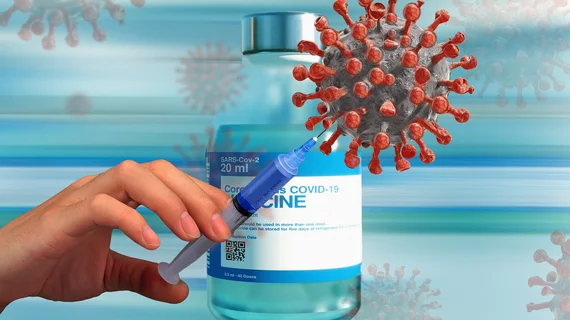The risk of myocarditis and pericarditis after a COVID-19 vaccination remains incredibly low, according to a new position paper written by a team of cardiologists and cardiac imaging specialists. The group recommends that all eligible individuals get vaccinated as soon as possible.
The new analysis, from the Swiss Society of Cardiology, was published in Swiss Medical Weekly.
The study’s authors reviewed updated data from a number of sources, emphasizing that the vaccines have been “highly effective in the protection against COVID-19 and post-COVID complications.”
They also reviewed the fact that, yes, cases of vaccine-related myocarditis and pericarditis have been reported, causing many regulatory agencies to add new warnings to vaccines that detail the risk. Myocarditis is typically seen in “younger, healthy males” and occur within five days after a person receives the second dose of the vaccine. Patients experiencing vaccine-related myocarditis present with chest pain, myalgia, fatigue or fever, the authors added.
However, these issues remain very rare. For instance, one study found that 2.8 million doses of COVID-19 vaccines were administered to members of the U.S. military—resulting in 23 cases of vaccine-related myocarditis.
“Based on all available current clinical and scientific evidence, the benefits of COVID-19 vaccines by far outweigh the potential risk of vaccine associated myocarditis and pericarditis,” wrote first author Philip Haaf, MD, a cardiologist at University Hospital Basel in Switzerland, and colleagues. “It is unlikely that there will ever be a completely risk-free vaccine. All medical interventions—including vaccines—incur potential risks that need to be balanced with their benefit. COVID-19 vaccines continue to be recommended for all eligible individuals.”
Haaf et al. also noted that high vaccination rates can help the world finally move past this ongoing pandemic.
“Population-wide vaccination is key to fighting the global pandemic, preventing COVID-19 infection, transmission, hospitalization, long COVID syndrome, multi-system inflammatory syndrome in children and death, and is crucial to the further relaxation of all social restrictions,” the authors concluded.
Read the full analysis here.

